Centre Pillar Sectioning - Outer
Danger: Always perform the High Voltage Disabling procedure prior to servicing any High Voltage component or connection. Personal Protection Equipment (PPE) and proper procedures must be followed.
The High Voltage Disabling procedure will perform the following tasks:
| • | Identify how to disable high voltage. |
| • | Identify how to test for the presence of high voltage. |
| • | Identify condition under which high voltage is always present and personal protection equipment (PPE) and proper procedures must be followed. |
| • | Safety glasses with appropriate side shields when within 15 meters (50 feet) of the vehicle, either indoors or outdoors. |
| • | Certified and up-to-date Class "0" Insulation gloves rated at 1000V with leather protectors. |
| - | Visually and functionally inspect the gloves before use. |
| - | Wear the Insulation gloves with leather protectors at all times when working with the high voltage battery assembly, whether the system is energised or not. |
Removal Procedure
Warning : Refer to Approved Equipment for Collision Repair Warning in the Preface section.
Warning : Refer to Collision Sectioning Warning in the Preface section.
Warning : Refer to Glass and Sheet Metal Handling Warning in the Preface section.
- Disable the SIR system. Refer to SIR Disabling and Enabling .
- Inspect the high voltage system. Refer to High Voltage System Inspection .
- Disable the high voltage system. Refer to High Voltage Disabling .
- Remove all related panels and components.
- Visually inspect the damage. Repair as much of the damage as possible.
- Remove the sealers and anti-corrosion materials from the repair area as necessary.
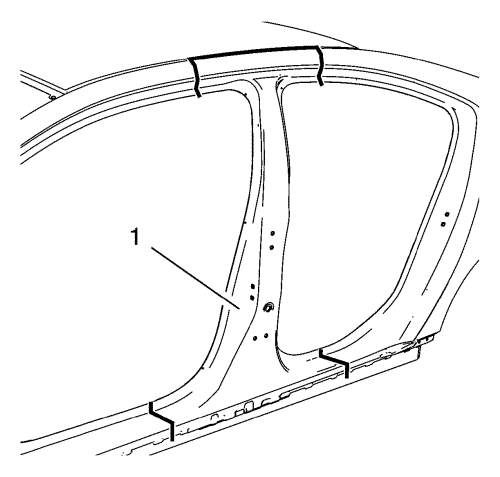
- Create cut lines on the centre pillar (1).
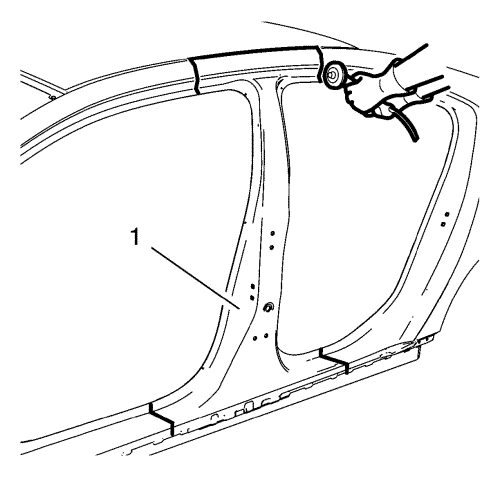
Note : Do not damage any inner panels or reinforcements.
- Cut the centre pillar (1) where the sectioning is to be performed.
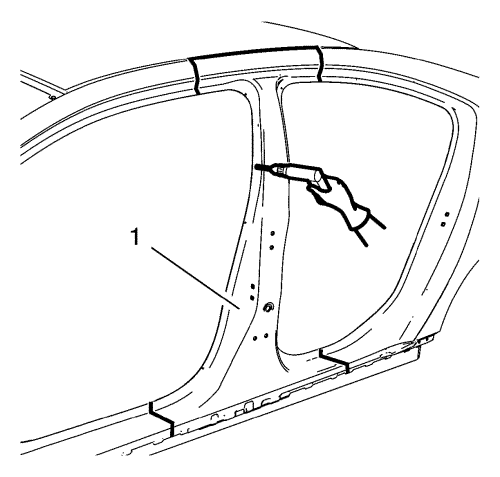
- Locate and mark all the necessary factory welds of the centre pillar (1).
- Drill all factory welds. Note the number and location of welds for installation of the service assembly.
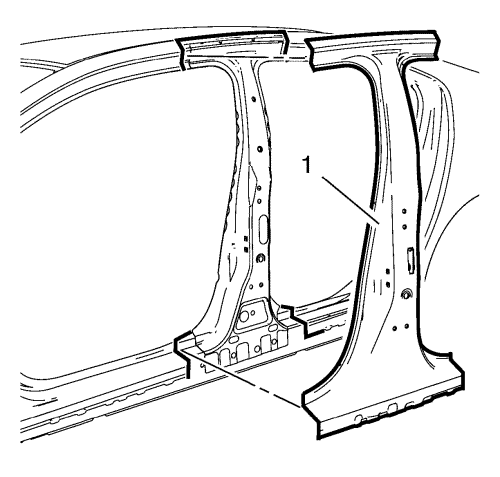
- Remove the damaged centre pillar (1).
Installation Procedure
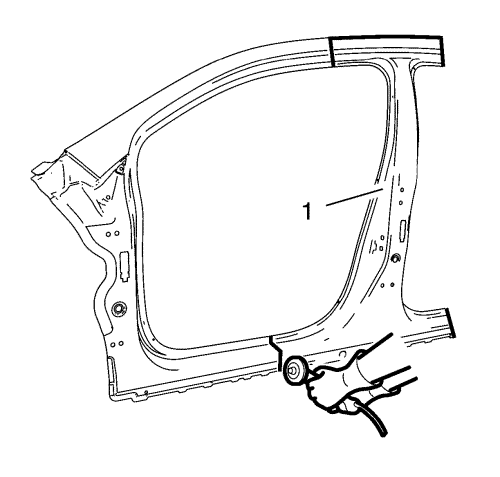
- Cut the centre pillar (1) in corresponding locations to fit the remaining original panel. The sectioning joint should be trimmed to allow a gap of one-and-one-half-times the metal thickness at the sectioning joint.
- Prepare all mating surfaces as necessary.
- Clean and prepare the attaching surfaces for spot welding.
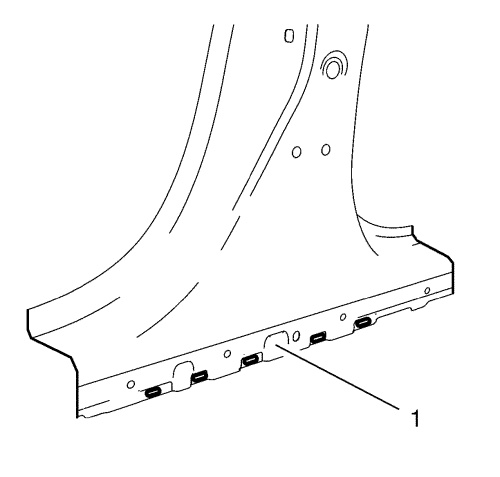
- Create 5 5 x 18 mm (4/16 x 11/16 in) slots for MIG-brazing to the centre pillar (1).
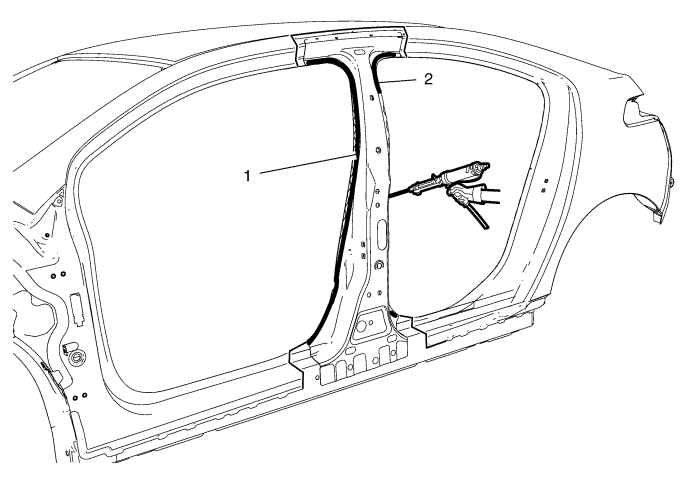
- Apply structural adhesive to centre pillar reinforcement (1, 2).

- Position the centre pillar (1) on the vehicle.
- Verify the fit of the centre pillar.
- Clamp the centre pillar into position.
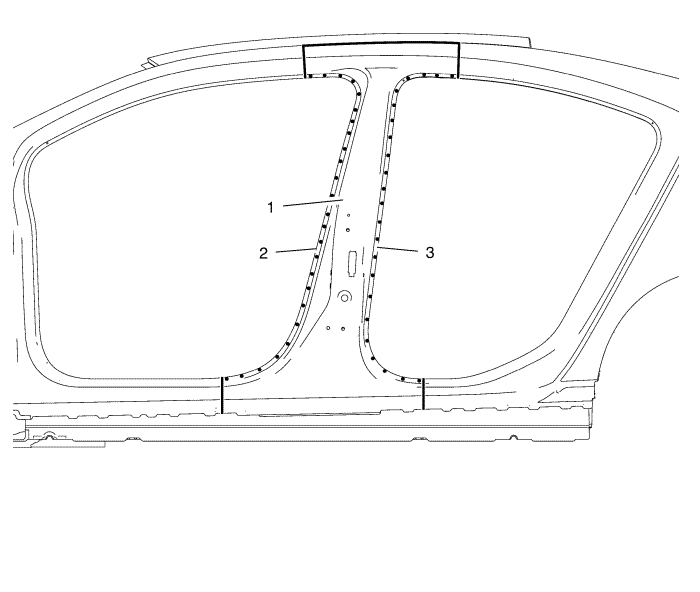
- Spot weld the centre pillar (1) accordingly.
| 9.1. | Flange front side door opening (2) - 25 spot welds. |
| 9.2. | Flange rear side door opening (3) - 23 spot welds. |
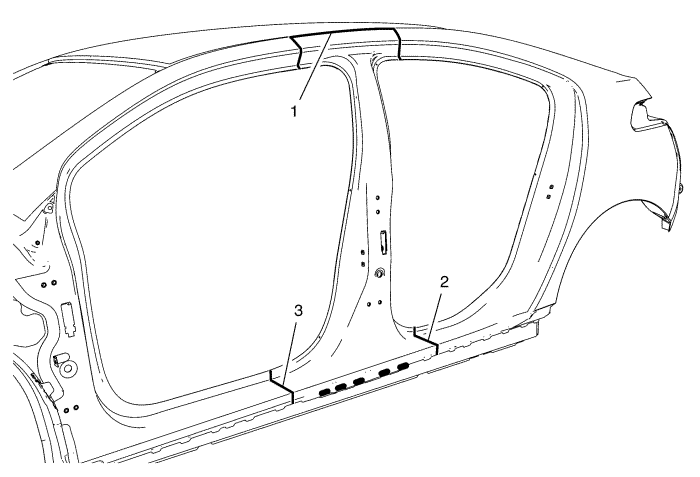
- Braze the centre pillar accordingly.
| 10.1. | Centre pillar / body side outer upper panel (1) - 750 mm. |
| 10.2. | Centre pillar / rocker outer panel (2) - 160 mm. |
| 10.3. | Centre pillar / rocker outer panel (3) - 170 mm. |
- To create a solid braze with minimum heat distortion, make 25 mm stitch brazes along the seam with 25 mm gaps between them. Then go back and complete the stitch braze.
- Apply the sealers and anti-corrosion materials to the repair area as necessary.
- Paint the repaired area.
- Install all related panels and components.
- Enable the high voltage system. Refer to High Voltage Enabling .
- Enable the SIR system. Refer to SIR Disabling and Enabling .
| ©© Copyright Chevrolet. All rights reserved |









